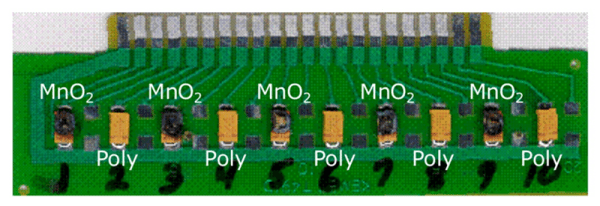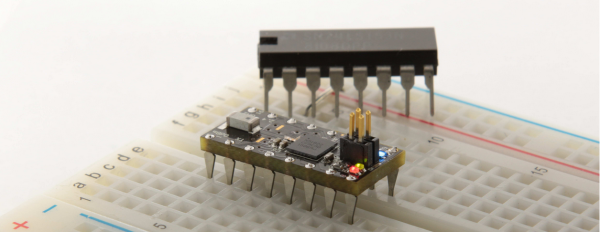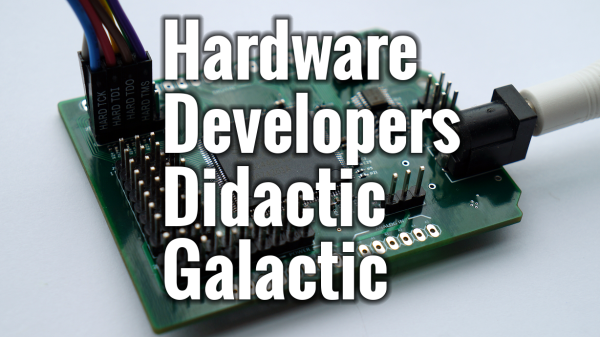Hackaday is known for having the best community around, and we prove this all the time. Every month, we hold meetups across the United States. This, in addition to conferences and mini-cons across the globe mean Hackaday is the premiere venue for technical talks on a wide variety of hardware creation. Everything from Design for Manufacturing, to the implementation of blinky bling is an open topic.
Now, we’re looking for the talk you can give. The Hardware Developers Didactic Galactic is a monthly gathering hosted by Supplyframe, the Overlords of Hackaday. It’s filled with the technical elite of San Francisco, usually held on the last Thursday of the month. We’re looking for a talk you can give, whether it’s about your IoT irrigation system, or that time you created something out of transistors and capacitors. We’re looking for speakers for all of 2019, and if you have a tale of the trials and tribulations of injection molding or Bluetooth pairing, we want to hear from you.
We have a sign-up form for presenters, and if you have something to present to a group of fantastic, technical people, we want to hear from you. All these talks are streamed and recorded, so if you’d like an idea of what we’re going for, just check out some of the previous talks. We have talks on how to start a decentralized space agency, wearable technology and fashion, optics and FPGAs, and System-in-Package tech. We’ve got a speaker travel stipend of up to $300, so there’s no excuse for you not to present your latest work.
There are thousands of people in the Hackaday community that have tons to contribute, and this is your chance. You are the best of the best, and we want to hear what you have to teach the rest of the community.

















